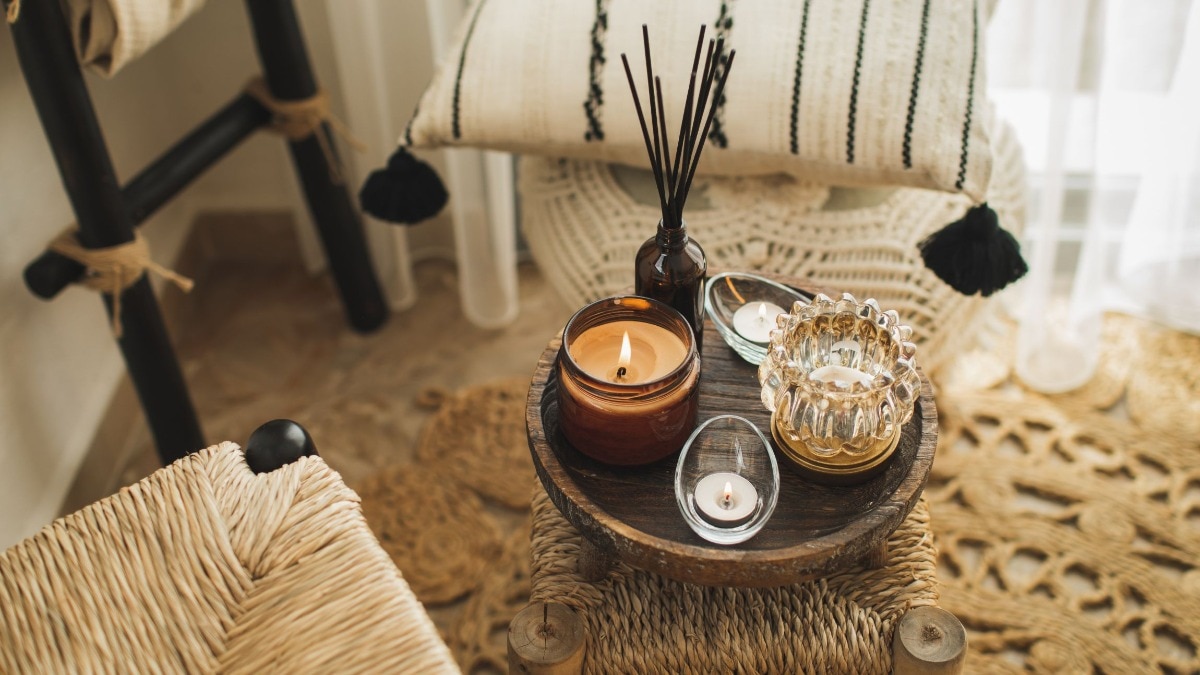
How best to deal with perimenopause and menopause, according to a yoga practioner
Armed with over two decades of teaching experience, Delhi-based yoga practioner, Mini Shastri gives a holistic view on managing menopause.


Perimenopause and menopause are increasingly impacting women across India, impacting their physical and mental health as well as their social and professional lives. As these transitional phases remain under-discussed and often misunderstood, many women in India are seeking more awareness and support. In an exclusive conversation with Bazaar India, Shastri explains the emotional and physical upheaval surrounding perimenopause and menopause, and ways to deal with it effectively.
Harper’s Bazaar: Besides physical stress,how can we deal with the emotional stress of perimenopause? What are some of the natural remedies to make life simpler during perimenopause?
Mini Shastri: “You can’t have hormonal balance if you have high stress, it’s simply not possible. Overworking, chronic infections, excess exercise (yes!), mental strain, etc., can release stress hormones into the body. To reduce these potentially harmful hormones, include Pranayama, create a daily routine, practice yoga and include nerve/muscle relaxing restorative asanas at the end of your daily exercise routine. Meditate for five to ten minutes every day! Try and establish a daily routine and adhere to it as much as possible. Uplifting habits nourish the nervous system, establishing a better hormonal landscape.This lowers accumulated stress and stress hormones such as cortisol, preventing it from dominating our hormonal landscape.The idea is to address stress in a way that it leaves us feeling balanced, not overwhelmed, or it will be another thing to stress about.
Some natural remedies around lifestyle, stress management and diet that support hormonal balance, and worked well for me are as follows:
• Choose a quiet time in the morning for around 20 minutes for breathing exercises. It acts as a balm on the wear and tear of the day gone by and provides us balance for what lies ahead.
• Follow this with some gentle stretches, twists and backbends.
• Create a ‘dincharya’ or self-care routine. Engage each of the five senses. Start by tongue scraping with a silver or copper tongue scraper to cleanse the accumulated bacteria built up overnight. Put some rose water in the eyes to refresh them.This reduces excessive heat in the body.Seeing the sun rise or smelling the morning grass are beautiful ways to awaken the senses.
• Undertake nasal oil lubrication or nasyam daily.This helps nourish the olfactory nerves which are proximate to the brain.
• Oil your skin daily. It has a positive effect on our hormones as skin is our largest organ and is home to vata-dosha [Ayurvedic mind-body element associated with air and space] that needs pacification specially during shifts in our hormonal cycle. Do the oiling yourself as the ritual sets off a feeling of commitment in self-care and releases the happy hormones of oxytocin.
• Drink a cup of warm water or herbal tea in the morning. No caffeine for 90 min post waking up.
• Process your emotions and eliminate all vishams (or poisons) from your life.Addictions, stimulants, company— you determine what they are. Anything that brings your aura and sense of clarity down, is not serving you in the long-run.
• Don’t overwhelm yourself with multi-tasking. Do one thing at a time and do it with complete care and attention.
• Eat meals at regular times and eat in a calm environment. Chew slowly and feel gratitude in being nourished.”

HB: Anxiety and depression are common during this time. What can one do to make sure these don’t get the better of us? Could you please share some personal tips, considering you have gone through it.
MS: “While women can deal with the physical symptoms, they find it a lot harder to deal with the emotional state due to hormone surges. It is the irregularity of the emotions that surprise and annoy. Hormones ebb and flow every month and over the span of our life.The disruption in the balance is due to the cumulative effect of stress hormones.The yogic approach is to maintain our natural hormonal balance. If we hold excess adrenaline and cortisol in our blood stream, it makes us sensitive and reactive. Awareness of your mental health and knowing when you are most balanced, help reduce negativity.
Make sure to move, do weight bearing poses and stretch your body to burn the tension and encourage the flow of Prana in the body. Undertake breathing exercises, especially anulom-vilom (breathing from alternate nostrils) helps in keeping the stress and sex hormones in the body in balance.”
HB: Insomnia, hot flashes, heavy periods are some common symptoms. How can we deal with them?
MS: “Imbalanced doshas may lead to uncomfortable symptoms associated with this time of life, including hot flashes, insomnia, anxiety, weight gain, water retention, palpitations, depression, dryness or pain during intercourse and osteoporosis. A holistic approach to manage this phase includes making appropriate diet, lifestyle and stress reduction changes supplemented by natural herbs and remedies if needed.
Ayurveda views menopause as a natural transition in life—from the pitta to the vata phase of life. It is not menopause that is the ‘problem’, it is the imbalance in the doshas, primarily vata, that leads to uncomfortable symptoms. According to Ayurveda and yoga, the imbalance, and wear and tear needs to be offset with the opposite qualities of dryness—that is unctuousness which is our natural state. Unctuousness is the need to have a smooth conduct between all our systems.
Instinctively, I felt the need to repair this in my hectic pace of life in my 40s. I could sense the need to add
warm moist food, oiliness, pranayama, a cleanse with a short rice gruel, fasting and increasing my meditation time. The effects were immediate.
The tools handed down through yoga and Ayurveda have stood the test of time and these tools are now a way of life for me, personally.They have been extremely transformative for me and many others to create a baseline for good health and self-care enabling us to discover our best selves.
As I entered my late 40s, my body and mind were constantly adjusting from the stages of perimenopause to menopause—a transition and a natural process. It was not seamless, but undertaking the above mentioned self- care hacks helped. Other things that I suggest are to release the day’s anger, worry and stress with stress reducing and uplifting activities like reading, soaking or oiling feet. Also, step back and watch your reaction and only respond after a pause.
These practices, when ideally done at the same time help relax the nervous system. It bolsters the parasympathetic nervous system—the one that reverses overstaying cortisols and teaches us to have a better relaxed response versus a reactive response to situations.
According to Dr Claudia Welch, the author of Balance Your Hormones, Balance,Your Life, it is the accumulation of underlying imbalances which, if not corrected earlier in life, magnify and present strongly during perimenopause. In her book, she says “Menopause is a natural passage in life, yet it is also the great unveiler. Whatever maladies were lurking under the surface before menopause will be revealed, the way a bright light reveals dust in the corners of a room.”
Feature and body image credits: Nayantara Parikh
This article originally appeared in Harper's Bazaar India January- February 2024 print issue
Also Read : Here is how you can master the art of self-promotion at work
: Mapping the cultural footprint of the queer community in India










